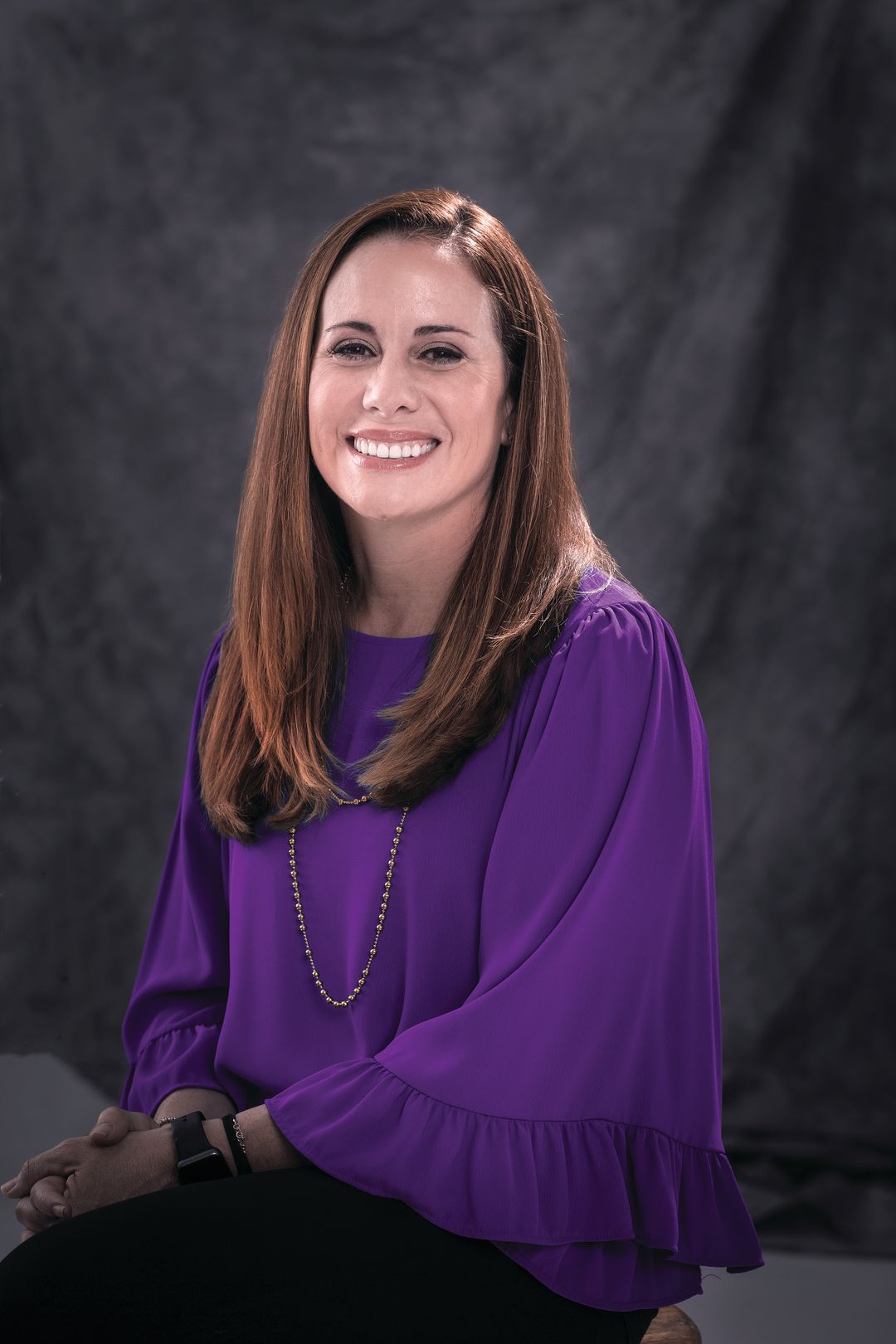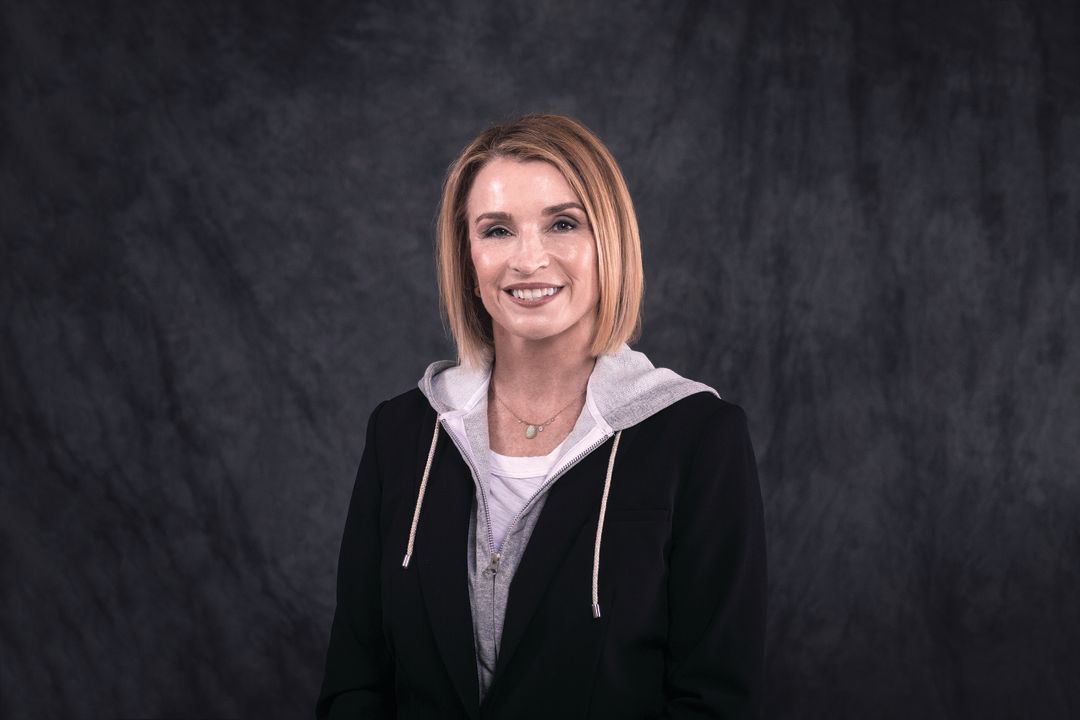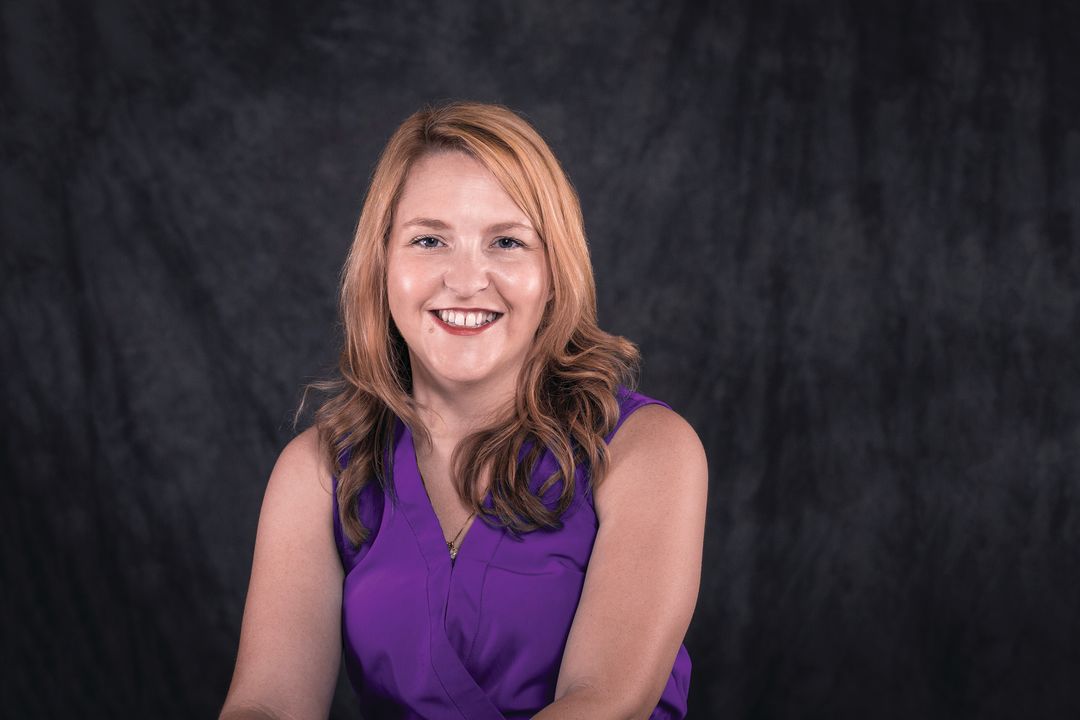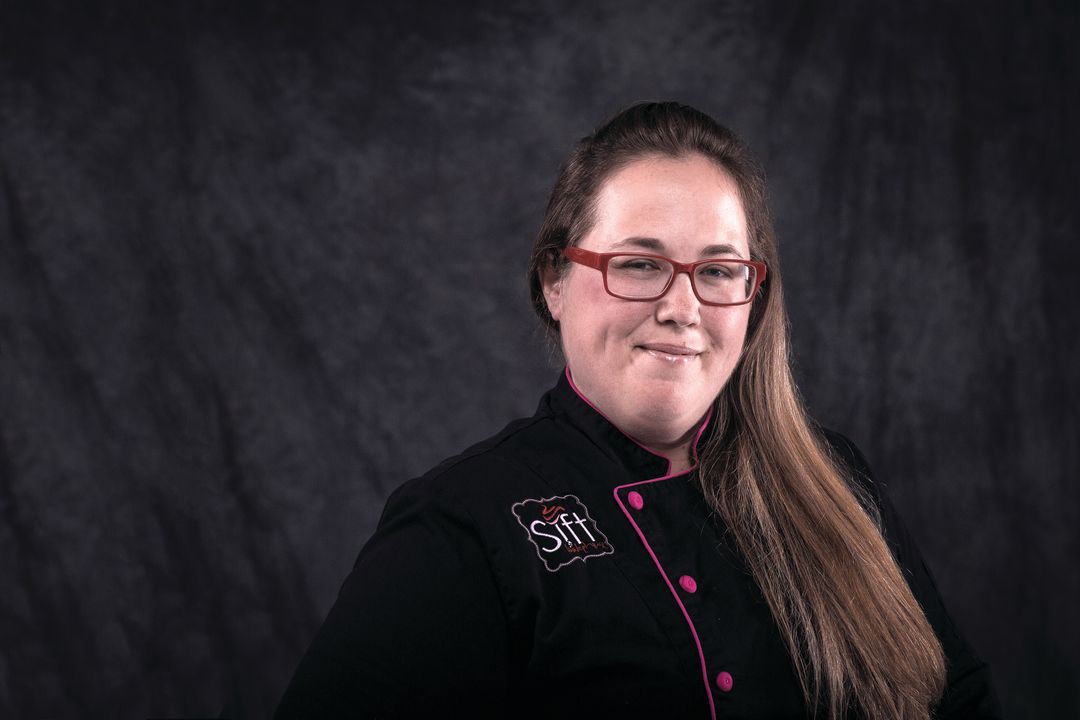Four Local Businesswomen Share Their Best Career Advice
Female leaders are rare at the top echelons of business. Only 5 percent of Fortune 500s are led by women, and only 20 percent of their boards are composed of females. Even in Southwest Florida, where small private companies dominate, women are a minority in executive suites and as company founders. We asked four successful women in Sarasota and Manatee about their journey up the ladder.

THE CORPORATE EXECUTIVE
Jennifer Cotter, executive vice president for television, content and programming for HSN
Manatee County resident Jennifer Cotter, 45, manages nearly 500 employees and freelancers at HSN, a $4-billion multichannel retailer based in St. Petersburg. She comes from a traditional television background, learning from Gerry Laybourne, creator of Nickelodeon; and Peter Lassally, who worked with Johnny Carson. She worked in comedy and talent development with Robert Morton, David Letterman’s longtime executive producer, and helped launch Oprah Winfrey’s Oxygen Network. Cotter took time off when her son was 2 and then was recruited by HSN, which offered her a four-day workweek that allowed her to spend more time with her husband and two sons.
What did you learn from your first TV bosses?
“They were complimentary about what I was great at, but also told me what I needed to develop. I realized how valuable that was. [After that] I looked for people I could learn from and aspired to be like and, conversely, for people [whose] behaviors I didn’t want to have as a leader.”
Your management style?
“I manage everyone from a kid who just came out of college to someone who has been with us 38 years. My leadership style is honest. I’m transparent. I want people to know I care about their career path and about their lives.”
How can women achieve parity with men at work?
“We have to support and stay focused on the advancement of women. Be a mentor to another woman. Be kind if someone’s doing something in a meeting that’s minimizing her own success. Women are more likely to take a passive role in a conversation. I encourage women to prepare themselves to push beyond their comfort zone.”
Did you ever experience gender bias?
“When I moved to Florida I was working with all women [at Oxygen], so it was interesting to go back to working with men who were significantly older than me. They had a role in mind that I was going to fill. [But] I wasn’t going to take a subordinate position to them.”
What company policies would help women balance family and work?
“Men and women should have certain perks related to family needs. I encourage my team to prioritize every day— if home life needs to come first, if a school performance outranks an important presentation at work. Planning and communication are key. Honesty around where you’ll be, when you will be back, what you might miss, is critical.”
Advice for women starting out?
“Stay organized, work hard and ask for advice. Figure out what makes you unique in a landscape of people. I’m a hard worker, but I also was more organized than [most] people in TV who tend to be creative first. Being organized and a good communicator differentiated me. Women [tend] to be their own toughest critic. Don’t beat yourself up. If I had it to do over again, I’d try and learn that earlier.”

Kim Ogilvie
THE SUPER SALESWOMAN
Kim Ogilvie, real estate agent, Michael Saunders & Company
Before Tennessee native Kim Ogilvie became one of the top-producing real estate agents in Southwest Florida, she graduated from the University of Tennessee in Knoxville with degrees in biology and psychology and worked in the oil industry in Houston. She moved to Sarasota in the early 1980s and joined Michael Saunders & Company’s Main Street office in 1989 when there were eight associates. She’s now among 90 associates in the office, and she and her husband, Michael, have achieved the highest sales volume in $1-million-plus homes from 2003 to 2015.
What advice do you give new agents?
“Connect with your clients, first and foremost. You have to understand what they need and want, even when they don’t know what it is. No. 2 would be being authentic and true to yourself. No. 3 would be to put the clients’ needs in front of your own. If I don’t feel that it’s right or to their benefit, I will advise them against it even though it’s going to cost me a commission. That’s why 90 percent of my business is repeat and referral.”
What’s it like to work with your husband?
“I’m a Type A-plus personality. He’s way more relaxed. And he’s got a big-picture view, whereas I’m involved in the day-to-day details, negotiating, going on listing appointments.”
What can women do to help each other succeed?
“Sometimes I think women are criticized for the qualities that men are praised for—tenacity, assertiveness, a competitive spirit, confidence. Women can bring those qualities to the table along with a softness and compassion [to help] people understand where they are in the largest purchase for most of them in their lifetime.”
Talk about working with Michael Saunders.
“She is an inspiration. In 1976, she started the company with a $5,000 loan co-signed by a male acquaintance because banks frowned upon giving a single woman money. Now her company has grown into the market leader with a lot of women in leadership roles. Michael, in her mid-70s, has more energy than 10 agents put together. You don’t get the pleasure of knowing that many people like her in your lifetime.”
Advice for agents starting out in real estate?
“Do whatever it takes to align yourself with a top producer as a mentor. I would cook their breakfast and clean their bathrooms in order to tag along, learn what they do and hear what they have to say.”
How do you balance your work and personal life?
“I spent many years having it run me, but now I finally feel like I’ve got a grasp on how to run it. It used to be all work, work, work. Now I make sure I have down time. I like to work out. I love to snow ski. I visit my family in Tennessee and spend time with my friends. Work is not everything.”

Erin Cigich
THE CEO
Erin Cigich, CEO, Clickbooth
Clickbooth CEO Erin Cigich grew up in Land O’ Lakes and attended the University of Florida. Five days after graduation from the advertising school in 2007, she took an entry-level sales position at digital startup Clickbooth in Sarasota. Cigich was the 10th employee of the targeted online advertising agency. Not long after, she was promoted to vice president of sales and then company president. Now 32, she is is in her third year as CEO. The 15-year-old company has 32 employees in Sarasota, five remote workers and a team of 15 developers based in Bosnia. She and her husband, Richard, live in Sarasota with their young daughters.
You had a mentor. What was her best advice?
“When I graduated, I thought that I was figuring out my entire life, and my boss at my college internship said, ‘You’re not figuring out your whole life, you’re figuring out what’s happening next.’ I didn’t take the position at Clickbooth thinking one day I would be CEO. It was just, ‘What’s the next challenge? What’s the next thing that excites you and how do you play to that?’ I still go back to that advice.”
Does gender influence your management style?
“Women are naturally empowering leaders and good listeners. Understanding employees’ motivators, goals, all the pieces that go into making them a whole person comes naturally to a woman vs. being more focused on just the numbers piece of it.”
What changes should happen to lift women up?
“Paid parental leave is important. Your whole life resets when you have a child. Clickbooth offers fulltime employees a flexible and unlimited paid time-off policy.”
How did you transition back to work after the births of your girls?
“With my first daughter I was worried that everything would go well without me and they would wonder, ‘What do we need her for?’ Or, that it would go poorly and I would have let my team down. I had to step out of that and check my ego. With my second daughter, we were [selling] Clickbooth from being founder-owned to private equity-owned. The pitching, negotiating, happened from when I was eight months pregnant to when my daughter was two months old. There were days when it would’ve been easier for me to come into the office, but I wanted to be with my daughter and live what our company values [such as maternity leave] are.”
Advice for women starting out?
“Speak up. If somebody asks a question and you feel like you have an answer or an idea, make sure you’re sharing that. That was a major contributor to me moving up within the company. Studies show that men apply for a job when they’re 70 percent qualified and women apply for a job only when they’re 100 percent qualified.”

Christine Nordstrom
THE ENTREPRENEUR
Christine Nordstrom, bakery and café owner
Ohio native Christine Nordstrom, 38, operates the bakery Sift Bakehouse; two locations for Styr, her breakfast and lunch cafes; and the new Five-0 Donut Co, all in downtown Sarasota. She also has joint custody of her two children. A graduate of Johnson & Wales University’s culinary arts program in Rhode Island, Nordstrom has interned as a pastry chef at the Biltmore in Asheville, North Carolina, and with Michelin-star chef David Kinch in California. When Nordstorm arrived in Sarasota in 2001, she worked as a waitress before landing a pastry chef job, then built her brand by selling her baked goods at farmers’ markets seven days a week. After the birth of her daughter, Nordstrom worked at Latitude 23.5 Coffee and Tea, where she started selling her popular baked goods.
What did you learn from star chef David Kinch?
“Restaurant Sent Sovi was a tiny galley kitchen. David taught me about working with what you have. And that you don’t have to have a lot of money to do what you love. As long as you do it well, people will support you.”
Any failures along the way?
“Cakewalk Bakehouse, defunct. Wired Whisk Bakehouse, defunct. Sift Bakehouse. Third time’s a charm. You have to fail several times before you make it in the food industry. And you’re either really well-funded or really experienced. I wasn’t well-funded. I’ve figured out creative ways to make it work.”
How tough is the local food industry?
“It’s lonely up here. You have to work your face off. I’m a single mom. I built my work and my business around having my kids. Think about the life you want to have and then choose a business accordingly. If you want to have a business but you don’t want to work seven days a week, look into something that you can do online and work from home.”
Your management style?
“A zero-drama policy. Most people stay with me long-term. We choose inherently good people who are also good at self-management.”
Marketing strategy?
“I built a brand through Instagram and Kevin Roberts’ book, Lovemarks [about marketing]. I love to connect and build with brand ambassadors. It all boils down to relationships.”
Advice for female entrepreneurs?
“Understand that you’re not just going to bake. You have to understand branding, social media, accounting, bookkeeping, cash flow, loss leaders. You have to understand your competition and have a grasp on psychology; otherwise you can’t manage employees. You have to learn how to delight people. And you have to do all of these things and still go take care of your family.”